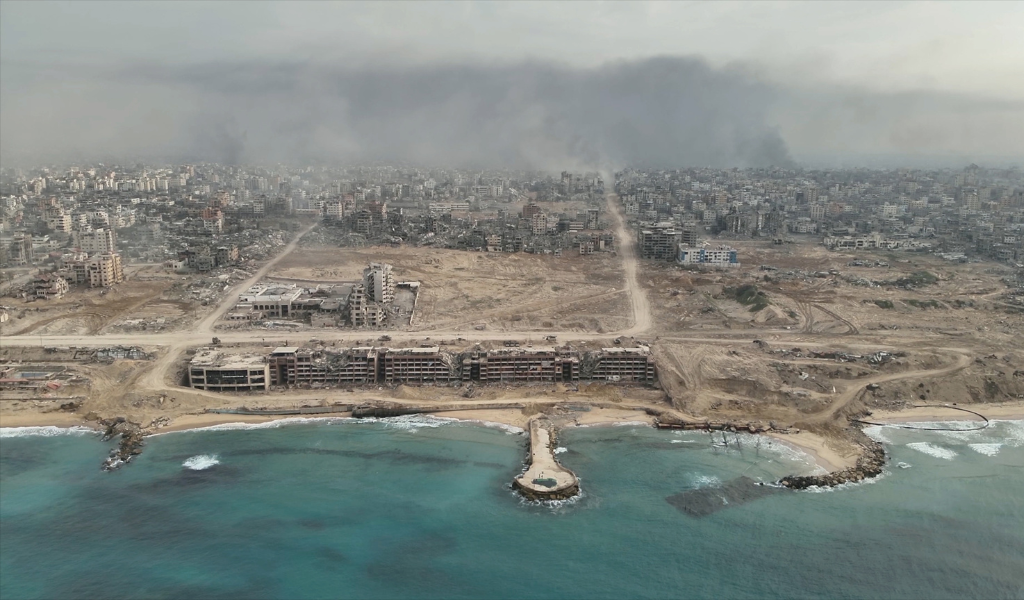As Palestinians today mark the 77th anniversary of the Nakba – the expulsion of Palestinian Arabs from their homeland in 1948 – IDS researchers share their commentary on the current siege of Gaza by Israel.

Since the ceasefire collapsed in March 2025, Israel has blocked any humanitarian aid from entering the Gaza Strip and resumed attacks on Palestinian civilians – a policy that amounts to ethnic cleansing. As a result, 2.1 million people are at a risk of famine. Governments around the world, including the UK, stand accused of complicity.
Peter Taylor, Director, Institute of Development Studies, said:
“At this desperate time, with famine-like conditions in the Gaza Strip and the Israeli government expressing the intent to destroy Palestine and the people who live there, we urge those political leaders who care about justice to work together to stop this catastrophe before it is too late.
The Integrated Food Security Phase Classification has already stated that one-fifth of the population in Gaza are in the most extreme form of food insecurity, facing starvation. This alone should be the justification for action, not just words, from world leaders.”
The crisis is in part a consequence of how humanitarian law has been swept aside. Philip Proudfoot, Research Fellow, Institute of Development Studies, said:
“The situation in Gaza represents not only a deliberately manufactured humanitarian catastrophe, but also the systematic erosion of International Humanitarian Law (IHL) — the normative framework meant to guarantee humanitarian access, protect aid personnel, and distinguish relief from military objectives.
“In its place, we have seen the emergence of ‘humanitarian camouflage’: a series of largely symbolic interventions — airdrops and a short-lived maritime corridor — carried out in close coordination with the Israeli military. These measures have delivered little in terms of actual relief but have served to obscure the ongoing failure of Israel to adhere to even its most basic responsibilities under IHL as an occupying power.
“The latest proposal to establish “concentrated” humanitarian zones under military oversight is not a deviation from this trajectory, but its logical endpoint. It marks a dangerous inversion: humanitarian operations facilitated by the very actor responsible for siege-induced famine, mass displacement, and the systematic targeting of civilian infrastructure. Aid agencies should have no part in legitimising such proposals.
“This is a critical juncture. If Gaza becomes a precedent, then the integrity, neutrality, and legal foundations of humanitarianism are at serious risk.”
Read more from the IDS MENA Initiative
Santiago Ripoll, Research Fellow, Institute of Development Studies commented that Israel’s proposal to deliver humanitarian aid should be rejected:
“Rather than allowing humanitarian aid agencies to do their duty, Israel has proposed taking over aid distribution themselves.
“The new operation will involve military presence, the identification of individuals and families in the Gaza Strip and a process — for political surveillance and repressive targeting of individuals — to distinguish who gets food and other aid services. Yet under humanitarian law, humanitarian assistance is unlawful if it is based on any criteria other than medical or humanitarian (Art. 69 (1) Additional Protocol I).
“The outcome of this necropolitics of occupation is to generate a ‘deathworld’ where civilians are subjected to conditions by which they are living dead – depoliticised, dehumanised – and those who are defined as a threat (a threat defined solely by the occupier and not any objective humanitarian criteria based on IHL) are identified and then killed or tortured. The living dead are only awarded agency as a crowd, as Israeli Finance Minister Bezalel Smotrich has said:
‘They will be totally despairing, understanding that there is no hope and nothing to look for in Gaza, and will be looking for relocation to begin a new life in other places.’”
